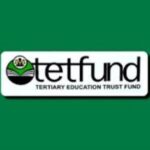By Chuks Oyema-Aziken
The Director-General, National Environmental Standards and Regulations Environmental Enforcement Agency (NESREA), Dr. Innocent Barikor has charged staff of the Agency and accredited consultants to play a critical role safeguarding Nigeria’s natural resources and public health.
He gave the charge on Wednesday at a capacity building workshop for NESREA staff and accredited consultants on Environmental audit reporting.
The one-day workshop organized in partnership with the Centre for Science and Environment (CSE), a global think tank based in New Delhi, India is attended by over 350 participants comprising NESREA accredited consultants and staff of the Agency
Dr. Barikor said NESREA staff and consultants are on the Frontline of environmental compliance, hence the training will enhance their capacity to enforce compliance, identify areas for environmental improvement and contribute valuable insights to our ongoing environmental strategy.
“Today’s training is organized with a view to strengthening our approach to environmental auditing, align our practices with global standards and sharpen our focus on effective, high-quality audit reporting. It encompasses a comprehensive orientation on the National Environmental Audit Guidelines, recently reviewed by NESREA in collaboration with CSE. These guidelines reflect both international standards and the specific regulatory and environmental contexts of Nigeria.
“This workshop focuses on two important aspects of environmental auditing, firstly, International Best Practices and Current Realities in Environmental Auditing and secondly, enhanced Audit Reporting for Regulatory and Strategic Impact.
“This training is expected to expose NESREA officers and consultants to recent developments and equip them with global best practices that elevate the accuracy, comprehensiveness and impact of our audits. Our participants will be enlightened on advanced techniques such as risk-based auditing, lifecycle analysis and data-driven environmental assessments, all of which are essential to conducting audits that are not only compliant but also predictive and preventive.
“As we are aware, high-quality audit reporting is a foundation to environmental compliance and enforcement. Our reports are key instruments that guide policy, inform industry standards and ultimately shape environmental performance across sectors.
“This workshop is sure to emphasize best practices for reporting, including enhanced environmental data interpretation, effective visualization, and clear communication of findings and recommendations. The goal is to produce audit reports that are actionable and technically robust, providing clear guidance for industries and facilities to improve their environmental management practices.
Speaking at the event, Ishita Garg of CSE said a thoroughly performed environmental audit allows industries to analyse the ambiguities in the implementation of management plans and take corrective measures.
“It also helps industries improve the process efficiency by optimizing the usage of resources, increasing production and thereby resulting in monetary benefits”.
She said on the regulatory front, a “comprehensive audit report can be helpful as it will assist in assessing the compliance status of the industry and understand its environmental performance. Comparing data of two to three years can ascertain whether the performance of an industry is improving or declining,”
“Most of the audit reports had enough of qualitative information but lacked in basic quantitative data like the production capacity, energy and water consumption, quantity of wastewater and solid waste generated. The reports also have only one-year data which makes it difficult to compare the performance of the industry with the previous years. In the absence of sufficient data, the whole audit process becomes ineffective,” she adds.
According to the Director, Inspection and Enforcement, NESREA, Mr. Isa Abdusalam “The new guidelines are more robust, focusing on quantitative and technical data from the industries along with the information on mitigation measures taken in various sectors over the years. Apart from being of immense use for project proponents and assistance to experts in conducting audits, these guidelines would also be useful for the regulatory bodies to review the submitted audit reports.”



